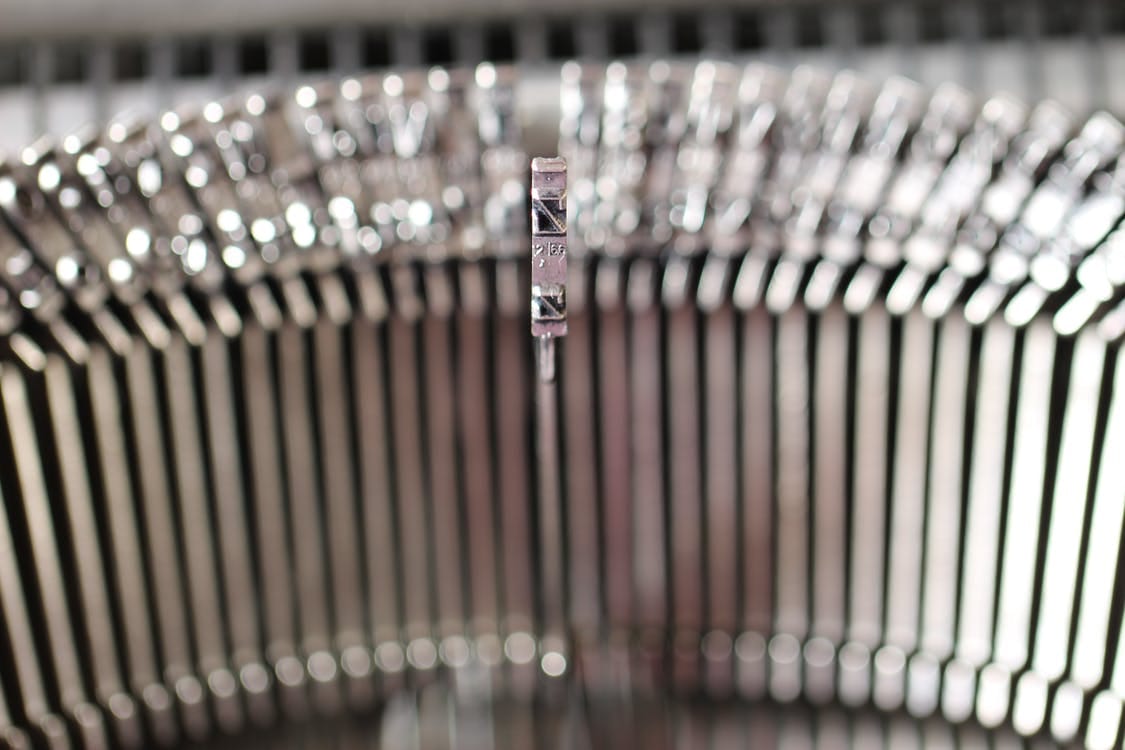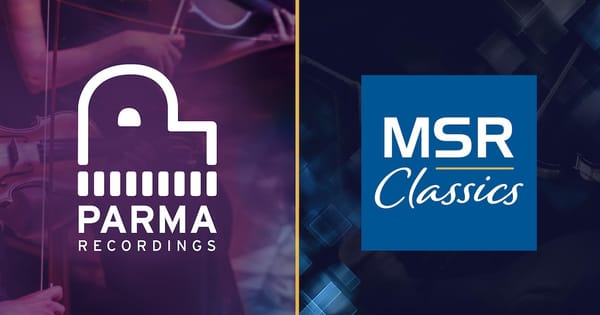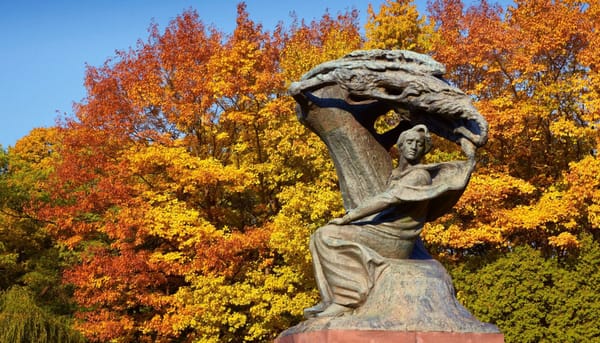Music and Poetry? Writing Inspired by Classical Music: Part I

The nine Greek muses of the arts served to encourage creativity, enhance imagination, and inspire artists. The Greeks also named “Ekphrasis,” a process in which descriptive words can expand the meaning of a work of art. For poetry, such works are known as “ekphrastic poems,” and literary journals exist that specialise in them. In most, if not all cases, the works of art are visual.
As a pianist and aspiring poet, I wanted to know if a similar association exists for poetry and music. For example, can classical music inspire poetic thoughts, even poetry itself? What would the process involve? Is the stimulus the music itself, the composer, an instrument, the situation around the listening event? Or something else, outside of but connected to the music, like a violin teacher, a conductor, a piano tuner? Or what if the poet simply uses music as a metaphor, like Walt Whitman’s “I Hear America Singing”?
There is no easy answer, in part because the question prods the creative process. For my own poems, the answer is “Yes, and….” It’s important to move carefully from one’s subjective experience to a generalisation. Some of my poems about music, for example, have been inspired during a conducting class, a chamber concert, and listening to human voices. Two focus on the composer, while the third uses music as a metaphor.
1) In an evening music school class, as one or two students were having difficulty learning how to conduct Beethoven’s Third Symphony, I wondered what the composer would have thought of the endeavour. It was the contrast of the music to the attempts to move the baton that made me think of Beethoven himself. What would he think? I imagined him stomping through the halls, angry that his work was not being interpreted correctly. The result is the poem “Beethoven Eavesdropping”.
2) While listening to a concert of Mozart chamber music in Salzburg, my thoughts wandered to a Mozart concerto I had once played as a young student. That memory in turn called forth others over time as I looked back, which came together in “Mozart Unravels Time’s Tight Curtain.”
3) On a trip to Dubrovnik, Croatia, after an early evening music performance, I watched crowds on the wide main street below the walled city. The sounds of people — talking, laughing, whispering, etc. filled the silence that had followed the concert. Since the wide street had once been a canal when the Venetians ruled Dubrovnik, I thought of time passing. All this resulted in “The Music of Place.”
In a further exploration of the links between music and poetry, I tried an experiment at several poetry workshops in collaboration with the leader. Each time I played a Chopin Nocturne on the piano as a “writing prompt” for participants to develop and write poems. They could write while I played, and/or in the half hour afterward. The results will appear in a subsequent article.
#
Beethoven Eavesdropping
Ludwig von Beethoven, eavesdropping,
peers through the glass window
of our conducting class at Juilliard,
eyes bright, wavy hair askew,
lips moving, ear trumpet in hand.
A beat-up grand piano pretends
orchestra sounds of his Third Symphony.
Sharp eyes under his crevice frown
attend the clueless conducting.
The student holds the downbeat up,
his baton flies, flails, and vibrates —
a white, aimless motion
(at best a molecular commotion) —
as the pianist weaves a miracle:
a two-handed-out-of-tune Eroica.
The Maestro frowns as he follows
the jittery baton’s efforts
to conduct his symphony’s
Funeral March. He shakes
his salt-and-pepper mane, shouts,
“Die Klasse ist nichtig!”
words ricocheting off the walls
like the first four notes of his Fifth.
Distracted by moonlight melodies,
and an “Ode to Joy” only he can hear,
along with syncopated hunger pangs,
he strides majestically over a cello,
scores, violin cases lining
the brightly-lit hall, his footsteps
falling faultlessly in rhythm.
#
Dr. Mary K. Lindberg, A Tang of Glue, 2006
The Music of Place
Dubrovnik, Croatia
Often the silence
where music once was
gives a place true music.
At midnight in the Old Town
Festival lights shine on ancient walls
not far from Vivaldi’s school.
After a concert in the ramparts
strollers talk eagerly,
flooding the mall with tones, rhythms,
gentle notes riding over polished air.
I hear the music of the place:
not sighs of strings or wind or
electronic moans with lights,
but soft sounds of human voices
rising and falling over a long bridge,
the murmur of centuries.
#
Dr. Mary K. Lindberg, A Tang of Glue, 2006
Mozart Unravels Time’s Tight Curtain
(Salzburg, Austria)
Notes rise from the past, like old friends.
At this Salzburg chamber concert I sit near
musicians in 18th century white wigs, stockings
sprightly lace cuffs. I listen but don’t hear.
Instead, I see Mrs. O accompanying me
on a beat-up studio piano
in that small town hall.
We play Mozart’s A Major Piano Concerto.
With her sharp eyes, straight nose,
shoes molded to walk straight, she nods
the downbeat — while here, decades later,
the operatic melodies, strung like pearls,
weave the Austrian air velvet.
Mozart unravels time’s tight curtain:
“Sit down and play for us, Mary Frances.”
My mother’s voice, silent for years, sings.
I would play forever to hear it again.
Mrs. O, you too are gone,
and cannot bring back
the measured moments —
a boyfriend warms my hands,
I practice how to bow with grace —
before recitals of dreams
performed on that stage.
In Salzburg I return
to all that doesn’t die or change —
Mozart’s music.
#
Dr. Mary K. Lindberg





